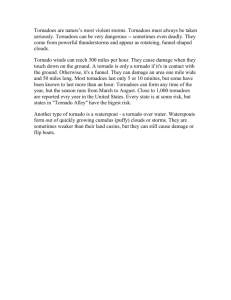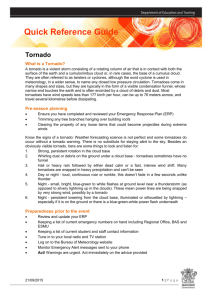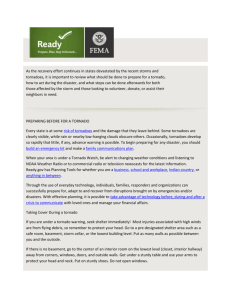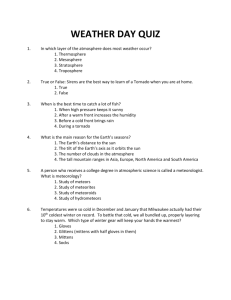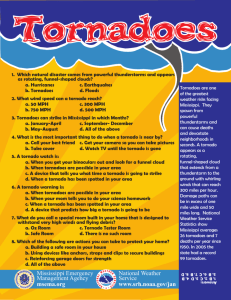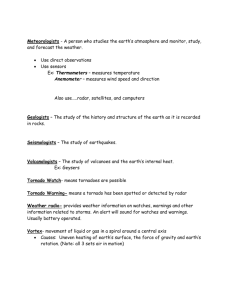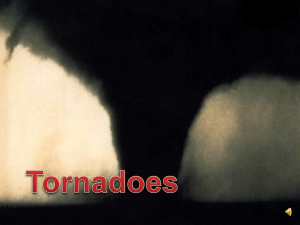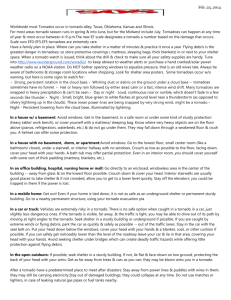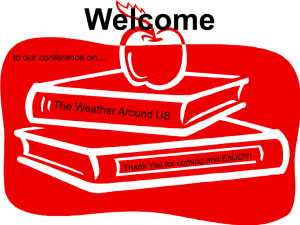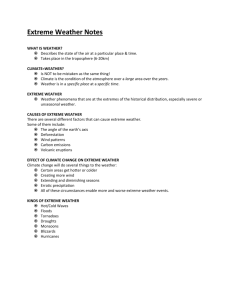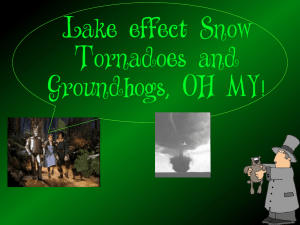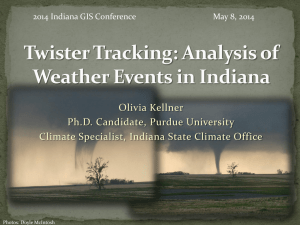Lecture:Tornadoes
advertisement
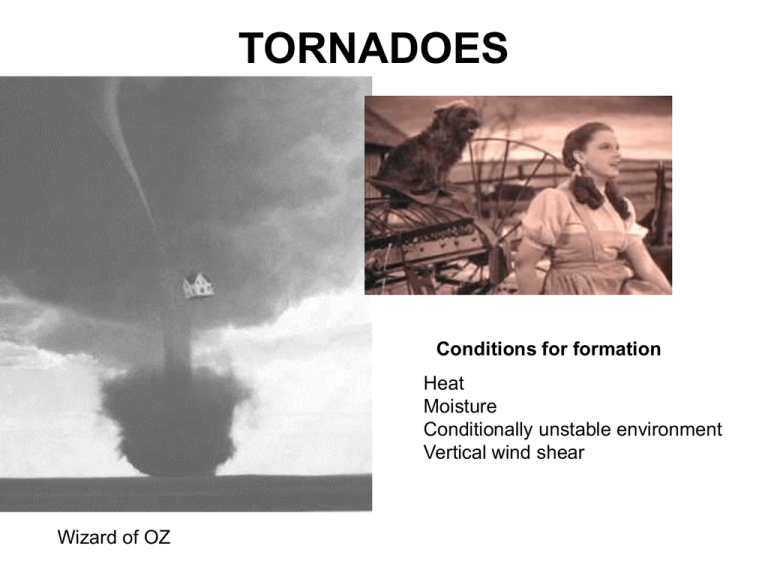
TORNADOES Conditions for formation Heat Moisture Conditionally unstable environment Vertical wind shear Wizard of OZ Tornadoes Local storms with violent winds that take the form of a rotating column of Air that extends from a cumulonimbus cloud. •Form in association with severe T-storms •Interaction between strong updrafts •And winds in the troposphere MESOCYCLONE: precondition For intense tornadoes Tornadoes Inflow and Outflow convergence rapidly increases into Updraft and Wall cloud The first observable step in tornado formation is the slow, horizontal rotation (a) of a large segment of the cloud which begins deep within the cloud interior. The resulting large vortices are called mesocyclones. Under the right conditions, strong updrafts cause the horizontal vortex of air to be tilted upward (b). Tornadoes 2 Ways for formation 1. Top-down process “dynamic pipe effect” •Air beneath wall cloud is Stretched by the updrafts •Within Stretched column of Air the flow is constricted Leading to a tighter vortex •Continues until tornado touches the ground Tornadoes 3 Ways for formation 2. Bottom-up process Vertical wind shear Causes a spinning effect In the lower atmosphere This spinning air is tilted in the vertical As it moves under the updrafts of the storm Near its base Tornadoes Formation in a non-supercell storm •These are generally weaker tornadoes •AKA: landspout •Short lived •Occur ahead of the frontal boundary •Occur in the NE quadrant of a hurricane •Occur over water “waterspout” Tornadoes STATS Diameter: 500-2000ft Speed: 30mph Lifetime: 3mins. To 3 hours Intensity: Based on the Fujita Scale (“F-Scale”) Observed in EVERY state of the US Top nine states: Texas Oklahoma Nebraska Iowa Illinois Missouri Indiana Mississippi Florida The Fujita Scale Measuring A Tornado F0 gale tornado 40-72 mph F1 moderate tornado 73-112 mph F2 significant tornado 113-157 mph F3 severe tornado 158-206 mph F4 devastating tornado 207-260 mph F5 incredible tornado 261-318 mph Some damage to chimneys; breaks branches off trees; pushes over shallow-rooted trees; damages sign boards. Lower limit is the beginning of hurricane-force winds. Peels surface off roofs; mobile homes pushed over; moving autos pushed off roads. Roofs torn off frame houses; mobile homes demolished; boxcars pushed over, large trees snapped or uprooted; light-object missiles generated. Severe damage. Roofs and some walls torn off wellconstructed homes; trains overturned; most trees in forest uprooted; heavy cars lifted off the ground and thrown. Well-constructed homes leveled; structures with weak foundations blown off some distance; cars thrown and large missiles generated. Phenomenal damage. Strong frame homes disintegrate or lifted off foundations and carried considerable distance; trees debarked. Tornado Watch: possibility Tornado Warning: Sighting
